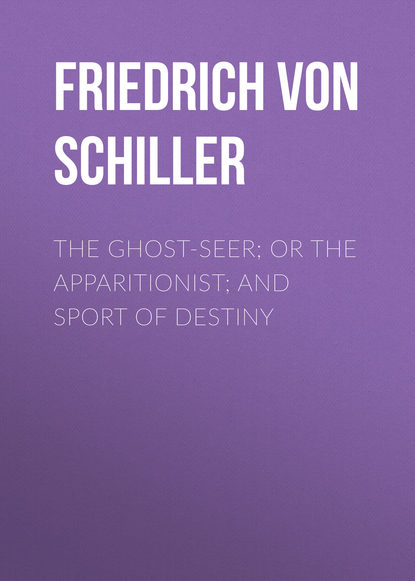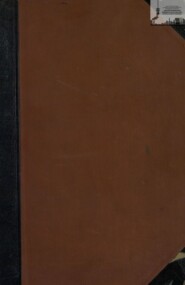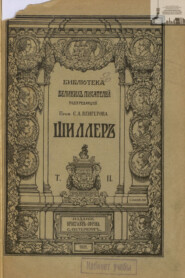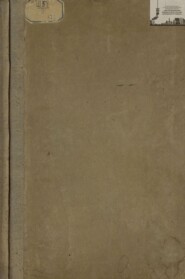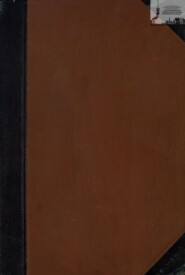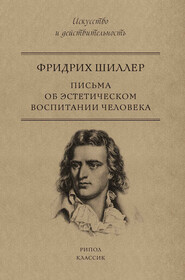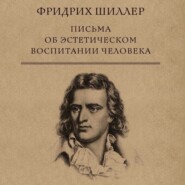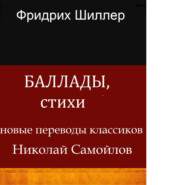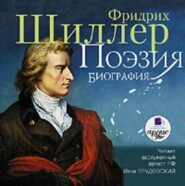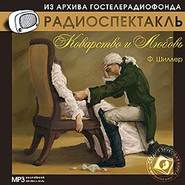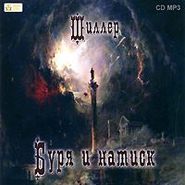По всем вопросам обращайтесь на: info@litportal.ru
(©) 2003-2024.
✖
The Ghost-Seer; or the Apparitionist; and Sport of Destiny
Настройки чтения
Размер шрифта
Высота строк
Поля
“It appeared so to me.”
“And this crucifix, according to the Sicilian’s confession, was a conductor. You see that the apparition hastened to make himself electrical. Thus the blow which Lord Seymour struck him with a sword was of course ineffectual; the electric stroke disabled his arm.”
“This is true with respect to the sword. But the pistol fired by the Sicilian, the ball of which we heard roll slowly upon the altar?”
“Are you convinced that this was the same ball which was fired from the pistol?” replied the prince. “Not to mention that the puppet, or the man who represented the ghost, may have been so well accoutred as to be invulnerable by sword or bullet; but consider who it was that loaded the pistols.”
“True,” said I, and a sudden light broke upon my mind; “the Russian. officer had loaded them, but it was in our presence. How could he have deceived us?”
“Why should he not have deceived us? Did you suspect him sufficiently to observe him? Did you examine the ball before it was put into the pistol? May it not have been one of quicksilver or clay? Did you take notice whether the Russian officer really put it into the barrel, or dropped it into his other hand? But supposing that he actually loaded the pistols, what is to convince you that he really took the loaded ones into the room where the ghost appeared, and did not change them for another pair, which he might have done the more easily as nobody ever thought of noticing him, and we were besides occupied in undressing? And could not the figure, at the moment when we were prevented from seeing it by the smoke of the pistol, have dropped another ball, with which it had been beforehand provided, on the the altar? Which of these conjectures is impossible?”
“You are right. But that striking resemblance to your deceased friend! I have often seen him with you, and I immediately recognized him in the apparition.”
“I did the same, and I must confess the illusion was complete. But if the juggler from a few stolen glances at my snuff-box was able to give to his apparition a resemblance, what was to prevent the Russian officer, who had used the box during the whole time of supper, who had had liberty to observe the picture unnoticed, and to whom I had discovered in confidence whom it represented, what was to prevent him from doing the same? Add to this what has been before observed by the Sicilian, that the prominent features of the marquis were so striking as to be easily imitated; what is there so inexplicable in this second ghost?”
“But the words he uttered? The information he gave you about your friend?”
“What?” said the prince, “Did not the Sicilian assure us, that from the little which he had learnt from me he had composed a similar story? Does not this prove that the invention was obvious and natural? Besides, the answers of the ghost, like those of an oracle, were so obscure that he was in no danger of being detected in a falsehood. If the man who personated the ghost possessed sagacity and presence of mind, and knew ever-so-little of the affair on which he was consulted, to what length might not he have carried the deception?”
“Pray consider, your highness, how much preparation such a complicated artifice would have required from the Armenian; how much time it takes to paint a face with sufficient exactness; how much time would have been requisite to instruct the pretended ghost, so as to guard him against gross errors; what a degree of minute attention to regulate every minor attendant or adventitious circumstance, which must be answered in some manner, lest they should prove detrimental! And remember that the Russian officer was absent but half an hour. Was that short space of time sufficient to make even such arrangements as were most indispensable? Surely, my prince, not even a dramatic writer, who has the least desire to preserve the three terrible unities of Aristotle, durst venture to load the interval between one act and another with such a variety of action, or to presume upon such a facility of belief in his audience.”
“What! You think it absolutely impossible that every necessary preparation should have been made in the space of half an hour?”
“Indeed, I look upon it as almost impossible.”
“I do not understand this expression. Does it militate against the physical laws of time and space, or of matter and motion, that a man so ingenious and so expert as this Armenian must undoubtedly be, assisted by agents whose dexterity and acuteness are probably not inferior to his own; favored by the time of night, and watched by no one, provided with such means and instruments as a man of this profession is never without – is it impossible that such a man, favored by such circumstances, should be able to effect so much in so short a time? Is it ridiculous or absurd to suppose, that by a very small number of words or signs he can convey to his assistants very extensive commissions, and direct very complex operations? Nothing ought to be admitted that is contrary to the established laws of nature, unless it is something with which these laws are absolutely incompatible. Would you rather give credit to a miracle than admit an improbability? Would you solve a difficulty rather by overturning the powers of nature than by believing an artful and uncommon combination of them?”
“Though the fact will not justify a conclusion such as you have condemned, you must, however, grant that it is far beyond our conception.”
“I am almost tempted to dispute even this,” said the prince, with a quiet smile. “What would you say, my dear count, if it should be proved, for instance, that the operations of the Armenian were prepared and carried on, not only during the half-hour that he was absent from us, not only in haste and incidentally, but during the whole evening and the whole night? You recollect that the Sicilian employed nearly three hours in preparation.”
“The Sicilian? Yes, my prince.”
“And how will you convince me that this juggler had not as much concern in the second apparition as in the first?”
“How so, your highness?”
“That he was not the principal assistant of the Armenian? In a word, how will you convince me that they did not co-operate?”
“It would be a difficult task to prove that,” exclaimed I, with no little surprise.
“Not so difficult, my dear count, as you imagine. What! Could it have happened by mere chance that these two men should form a design so extraordinary and so complicated upon the same person, at the same time, and in the same place? Could mere chance have produced such an exact harmony between their operations, that one of them should play so exactly the game of the other? Suppose for a moment that the Armenian intended to heighten the effect of his deception, by introducing it after a less refined one – that he created a Hector to make himself his Achilles. Suppose that he has done all this to discover what degree of credulity he could expect to find in me, to examine the readiest way to gain my confidence, to familiarize himself with his subject by an attempt that might have miscarried without any prejudice to his plan; in a word, to tune the instrument on which he intended to play. Suppose he did this with the view of exciting my suspicions on one subject in order to divert my attention from another more important to his design. Lastly, suppose he wishes to have some indirect methods of information, which he had himself occasion to practise, imputed to the sorcerer, in order to divert suspicion from the true channel.”
“How do you mean?” said I.
“Suppose, for instance, that he may have bribed some of my servants to give him secret intelligence, or, perhaps, even some papers which may serve his purpose. I have missed one of my domestics. What reason have I to think that the Armenian is not concerned in his leaving me? Such a connection, however, if it existed, may be accidently discovered; a letter may be intercepted; a servant, who is in the secret, may betray his trust. Now all the consequence of the Armenian is destroyed if I detect the source of his omniscience. He therefore introduces this sorcerer, who must be supposed to have some design upon me. He takes care to give me early notice of him and his intentions, so that whatever I may hereafter discover my suspicions must necessarily rest upon the Sicilian. This is the puppet with which he amuses me, whilst he himself, unobserved and unsuspected, is entangling me in invisible snares.”
“We will allow this. But is it consistent with the Armenian’s plan that he himself should destroy the illusion which he has created, and disclose the mysteries of his science to the eyes of the uninitiated?”
“What mysteries does he disclose? None, surely, which he intends to practise on me. He therefore loses nothing by the discovery. But, on the other hand, what an advantage will he gain, if this pretended victory over juggling and deception should render me secure and unsuspecting; if he succeeds in diverting my attention from the right quarter, and in fixing my wavering suspicions on an object the most remote from the real one! He could naturally expect that, sooner or later, either from my own doubts, or at the suggestion of another, I should be tempted to seek a key to his mysterious wonders, in the mere art of a juggler; how could he better provide against such an inquiry than by contrasting his prodigies with juggling tricks. By confining the latter within artificial limits, and by delivering, as it were, into my hands a scale by which to appreciate them, he naturally exalts and perplexes my ideas of the former. How many suspicions he precludes by this single contrivance! How many methods of accounting for his miracles, which afterwards have occurred to me, does he refute beforehand!”
“But in exposing such a finished deception he has acted very much against his own interest, both by quickening the penetration of those whom he meant to impose upon, and by staggering their belief in miracles in general. Your highness’ self is the best proof of the insufficiency of his plan, if indeed he ever had one.”
“Perhaps he has been mistaken in respect to myself,” said the prince; “but his conclusions have nevertheless been well founded. Could he foresee that I should exactly notice the very circumstance which threatens to become the key to the whole artifice? Was it in his plan that the creature he employed should render himself thus vulnerable? Are we certain that the Sicilian has not far exceeded his commission? He has undoubtedly done so with respect to the ring, and yet it is chiefly this single circumstance which determined my distrust in him. How easily may a plan, whose contexture is most artful and refined, be spoiled in the execution by an awkward instrument. It certainly was not the Armenian’s intention that the sorcerer should trumpet his fame to us in the style of a mountebank, that he should endeavor to impose upon us such fables as are too gross to bear the least reflection. For instance, with what countenance could this impostor affirm that the miraculous being he spoke of must renounce all commerce with mankind at twelve in the night? Did we not see him among us at that very hour?”
“That is true,” cried I. “He must have forgotten it.”
“It often happens, to people of this description, that they overact their parts; and, by aiming at too much, mar the effects which a well-managed deception is calculated to produce.”
“I cannot, however, yet prevail on myself to look upon the whole as a mere preconcerted scheme. What! the Sicilian’s terror, his convulsive fits, his swoon, the deplorable situation in which we saw him, and which was even such as to move our pity, were all these nothing more than a studied part? I allow that a skilful performer may carry imitation to a very high pitch, but he certainly has no power over the organs of life.”
“As for that, my friend,” replied the prince, “I have seen Richard III. performed by Garrick. But were we at that moment sufficiently cool to be capable of observing dispassionately? Could we judge of the emotion of the Sicilian when we were almost overcome by our own? Besides, the decisive crisis even of a deception is so momentous to the deceiver himself that excessive anxiety may produce in him symptoms as violent as those which surprise excites in the deceived. Add to this the unexpected entrance of the watch.”
“I am glad you remind me of that, prince. Would the Armenian have ventured to discover such a dangerous scheme to the eye of justice; to expose the fidelity of his creature to so severe a test? And for what purpose?”
“Leave that matter to him; he is no doubt acquainted with the people he employs. Do we know what secret crimes may have secured him the silence of this man? You have been informed of the office he holds in Venice; what difficulty will he find in saving a man of whom he himself is the only accuser?”
[This suggestion of the prince was but too well justified by the event. For, some days after, on inquiring after the prisoner, we were told that he had escaped, and had not since been heard of.]
“You ask what could be his motives for delivering this man into the hands of justice?” continued the prince. “By what other method, except this violent one, could he have wrested from the Sicilian such an infamous and improbable confession, which, however, was so material to the success of his plan? Who but a man whose case is desperate, and who has nothing to lose, would consent to give so humiliating an account of himself? Under what other circumstances could we have believed such a confession?”
“I grant all this, my prince. That the two apparitions were mere contrivances of art; that the Sicilian has imposed upon us a tale which the Armenian his master, had previously taught him; that the efforts of both have been directed to the same end, and, from this mutual intelligence all the wonderful incidents which have astonished us in this adventure may be easily explained. But the prophecy in the square of St. Mark, that first miracle, which, as it were, opened the door to all the rest, still remains unexplained; and of what use is the key to all his other wonders if we despair of resolving this single one?”
“Rather invert the proposition, my dear count,” answered the prince, “and say what do all these wonders prove if I can demonstrate that a single one among them is a juggling trick? The prediction, I own, is totally beyond my conception. If it stood alone; if the Armenian had closed the scene with it, instead of beginning it, I confess I do not know how far I might have been carried. But in the base alloy with which it is mixed it is certainly rather suspicious. Time may explain, or not explain it; but believe me, my friend!” added the prince, taking my hand, with a grave countenance, – “a man who can command supernatural powers has no occasion to employ the arts of a juggler; he despises them.”
“Thus,” says Count O – , “ended a conversation which I have related word for word, because it shows the difficulties which were to be overcome before the prince could be effectually imposed upon; and I hope it may free his memory from the imputation of having blindly and inconsiderately thrown himself into a snare, which was spread for his destruction by the most unexampled and diabolical wickedness. Not all,” continues Count O – , “who, at the moment I am writing, smile contemptuously at the prince’s credulity, and, in the fancied superiority of their own yet untempted understanding, unconditionally condemn him; not all of these, I apprehend, would have stood his first trial so courageously. If afterwards, notwithstanding this providential warning, we witness his downfall; if we see that the black design against which, at the very outset, he was thus cautioned, is finally successful, we shall be less inclined to ridicule his weakness than to be astonished at the infamous ingenuity of a plot which could seduce an understanding so fully prepared. Considerations of worldly interest can have no influence upon my testimony; he, who alone would be thankful for it, is now no more. His dreadful destiny is accomplished; his soul has long since been purified before the throne of truth, where mine will likewise have appeared before these passages meet the eyes of the world. Pardon the involuntary tears which now flow at the remembrance of my dearest friend. But for the sake of justice I must write this. His was a noble character, and would have adorned a throne which, seduced by the most atrocious artifice, he attempted to ascend by the commission of a crime.
BOOK II
“Not long after these events,” continues Count O – , in his narrative, “I began to observe an extraordinary alteration in the disposition of the prince, which was partly the immediate consequence of the last event and partly produced by the concurrence of many adventitious circumstances. Hitherto he had avoided every severe trial of his faith, and contented himself with purifying the rude and abstract notions of religion, in which he had been educated, by those more rational ideas upon this subject which forced themselves upon his attention, or comparing the many discordant opinions with each other, without inquiring into the foundations of his faith. Religious subjects, he has many times confessed to me, always appeared to him like an enchanted castle, into which one does not set one’s foot without horror, and that they act therefore much the wiser part who pass it in respectful silence, without exposing themselves to the danger of being bewildered in its labyrinths. A servile and bigoted education was the source of this dread; this had impressed frightful images upon his tender brain, which, during the remainder of his life, he was never able wholly to obliterate. Religious melancholy was an hereditary disorder in his family. The education which he and his brothers had received was calculated to produce it; and the men to whose care they were entrusted, selected with this object, were also either enthusiasts or hypocrites.
“To stifle all the sprightliness of the boy, by a gloomy restraint of his mental faculties, was the only method of securing to themselves the highest approbation of his royal parents. The whole of our prince’s childhood wore a dark and gloomy aspect; mirth was banished even from his amusements. All his ideas of religion were accompanied by some frightful image; and the representations of terror and severity were those which first took hold of his lively imagination, and which the longest retained their empire over it. His God was an object of terror, a being whose occupation is to chastise; and the adoration he paid him was either slavish fear, or a blind submission which stifled all his energies. In all his youthful propensities, which a vigorous growth and a fine constitution naturally excited to break out with the greater violence, religion stood in his way; it opposed everything upon which his young heart was bent; he learned to consider it not as a friend, but as the scourge of his passions; so that a silent indignation was gradually kindled against it in his heart, which, together with a bigoted faith and a blind fear, produced an incongruous mixture of feelings, and an abhorrence of a ruler before whom he trembled.
“It is no wonder, therefore, that he took the first opportunity of escaping from so galling a yoke – but he fled from it as a bond-slave who, escaping from his rigorous master, drags along with him a sense of his servitude, even in the midst of freedom; for, as he did not renounce the faith of his earlier years from a deliberate conviction, and did not wait till the maturity and improvement of his reasoning had weaned him from it, but escaped from it like a fugitive, upon whose person the rights of his master are still in force, so was he obliged, even after his widest separation, to return to it at last. He had escaped with his chain, and for that reason must necessarily become the prey of any one who should discover it, and know how to make use of the discovery. That such a one presented himself, the sequel of this history will prove; most likely the reader has already surmised it.
“The confessions of the Sicilian left a deeper impression upon his mind than they ought, considering the circumstances; and the small victory which his reason had thence gained over this weak imposture, remarkably increased his reliance upon his own powers. The facility with which he had been able to unravel this deception appeared to have surprised him. Truth and error were not yet so accurately distinguished from each other in his mind but that he often mistook the arguments which were in favor of the one for those in favor of the other. Thence it arose that the same blow which destroyed his faith in wonders made the whole edifice of it totter. In this instance, he fell into the same error as an inexperienced man who has been deceived in love or friendship, because he happened to make a bad choice, and who denies the existence of these sensations, because he takes the occasional exceptions for distinguishing features. The unmasking of a deception made even truth suspicious to him, because he had unfortunately discovered truth by false reasoning.
“This imaginary triumph pleased him in proportion to the magnitude of the oppression from which it seemed to deliver him. From this instant there arose in his mind a scepticism which did not spare even the most sacred objects.
“Many circumstances concurred to encourage, and still more to confirm, him in this turn of mind. He now quitted the retirement in which he had hitherto lived, and gave way to a more dissipated mode of life. His rank was discovered; attentions which he was obliged to return, etiquettes for which he was indebted to his rank, drew him imperceptibly within the vortex of the great world. His rank, as well as his personal attractions, opened to him the circles of all the beaux esprits in Venice, and he soon found himself on terms of intimacy with the most enlightened persons in the republic, men of learning as well as politicians. This obliged him to en large the monotonous and limited circle to which his understanding had hitherto been confined. He began to perceive the poverty and feebleness of his ideas, and to feel the want of more elevated impressions. The old-fashioned turn of his understanding, in spite of the many advantages with which it was accompanied, formed an unpleasing contrast with the current ideas of society; his ignorance of the commonest things frequently exposed him to ridicule, than which he dreaded nothing more. The unfortunate prejudice which attached to his native country appeared to him a challenge to overcome it in his own person. Besides this, there was a peculiarity in his character; he was offended with every attention that he thought was paid him on account of his rank rather than his personal qualities. He felt this humiliation principally in the company of persons who shone by their abilities, and triumphed, as it were, over their birth by their merit. To perceive himself distinguished as a prince, in such a society, was always a deep humiliation to him, because he unfortunately fancied himself excluded by his rank from all competition. These circumstances convinced him of the necessity of cultivating his mind, in order to raise it to a level with the thinking part of the world, from which he had hitherto been so separated; and for that purpose he chose the most modern books, and applied himself to them with all the ardor with which he was accustomed to pursue every object to which he devoted himself. But the unskilful hand that directed his choice always prompted him to select such as were little calculated to improve either his heart or his reason; besides that, he was influenced by a propensity which rendered everything irresistible which was incomprehensible. He had neither attention nor memory for anything that was not of that character, and both his reason and his heart remained untouched, while he was filling the vacuities of his brain with confused ideas. The dazzling style of some writers captivated his imagination, while the subtlety of others ensnared his reason. Together, they easily took possession of a mind which became the prey of whatever was obtruded upon it with a certain degree of dogmatism. A course of reading, which had been continued with ardor for more than a year, had scarcely enriched him with one benevolent idea, but had filled his head with doubts, which, as a natural consequence with such a character, had almost found an unfortunate road to his heart. In a word, he had entered this labyrinth as a credulous enthusiast, had left it as a sceptic, and at length became a perfect free-thinker.
“Among the circles into which he had been introduced there was a private society called the Bucentauro, which, under the mask of a noble and rational liberality of sentiment, encouraged the most unbridled licentiousness of manners and opinion. As it enumerated many of the clergy among its members, and could even boast of some cardinals at its head, the prince was the more easily induced to join it. He thought that certain dangerous truths, which reason discovers, could be nowhere better preserved than in the hands of such persons, whose rank compelled them to moderation, and who had the advantage of hearing and examining the other side of the question. The prince did not recollect that licentiousness of sentiment and manners takes so much the stronger hold among persons of this rank, inasmuch as they for that reason feel one curb less; and this was the case with the Bucentauro, most of whose members, through an execrable philosophy, and manners worthy of such a guide, were not only a disgrace to their own rank, but even to human nature itself. The society had its secret degrees; and I will believe, for the credit of the prince, that they never thought him worthy of admission into the inmost sanctuary. Every one who entered this society was obliged, at least so long as he continued to be a member of it, to lay aside all distinctions arising from rank, nation, or religion, in short, every general mark or distinction whatever, and to submit himself to the condition of universal equality. To be elected a member was indeed a difficult matter, as superiority of understanding alone paved the way to it. The society boasted of the highest ton and the most cultivated taste, and such indeed was its fame throughout all Venice. This, as well as the appearance of equality which predominated in it, attracted the prince irresistibly. Sensible conversations, set off by the most admirable humor, instructive amusements, and the flower of the learned and political world, which were all attracted to this point as to their common centre, concealed from him for a long time the danger of this connection. As he by degrees discovered through its mask the spirit of the institution, as they grew tired of being any longer on their guard before him, to recede was dangerous, and false shame and anxiety for his safety obliged him to conceal the displeasure he felt. But he already began, merely from familiarity with men of this class and their sentiments, though they did not excite him to imitation, to lose the pure and charming simplicity of his character, and the delicacy of his moral feelings. His understanding, supported by real knowledge, could not without foreign assistance solve the fallacious sophisms with which he had been here ensnared; and this fatal poison had already destroyed all, or nearly all, the basis on which his morality rested. He surrendered the natural and indispensable safeguards of his happiness for sophisms which deserted him at the critical moment, and he was consequently left to the operation of any specious argument which came in his way.
“Perhaps the hand of a friend might yet have been in time to extricate him from this abyss; but, besides that I did not become acquainted with the real character of the Bucentauro till long after the evil had taken place, an urgent circumstance called me away from Venice just at the beginning of this period. Lord Seymour, too, a valuable acquaintance of the prince, whose cool understanding was proof against every species of deception, and who would have infallibly been a secure support to him, left us at this time in order to return to his native country. Those in whose hands I left the prince were indeed worthy men, but inexperienced, excessively narrow in their religious opinions, deficient in their perception of the evil, and wanting in credit with the prince. They had nothing to oppose to his captious sophisms except the maxims of a blind and uninquiring faith, which either irritated him or excited his ridicule. He saw through them too easily, and his superior reason soon silenced those weak defenders of the good cause, as will be clearly evinced from an instance which I shall introduce in the sequel. Those who, subsequent to this, possessed themselves of his confidence, were much more interested in plunging him deeper into error. When I returned to Venice in the following year how great a change had already taken place in everything!
“The influence of this new philosophy soon showed itself in the prince’s conduct. The more openly he pursued pleasure, and acquired new friends, the more did he lose in the estimation of his old ones. He pleased me less and less every day; we saw each other more seldom, and indeed he was seldom accessible. He had launched out into the torrent of the great world. His threshold was eternally thronged when he was at home. Amusements, banquets, and galas followed each other in rapid succession. He was the idol whom every one courted, the great attraction of every circle. In proportion as he, in his secluded life, had fancied living in society to be difficult, did he to his astonishment find it easy. Everything met his wishes. Whatever he uttered was admirable, and when he remained silent it was like committing a robbery upon the company. They understood the art of drawing his thoughts insensibly from his soul, and then with a little delicate management to surprise him with them. This happiness, which accompanied him everywhere, and this universal success, raised him indeed too much in his own ideas, because it gave him too much confidence and too much reliance upon himself.
“The heightened opinion which he thus acquired of his own worth made him credit the excessive and almost idolatrous adoration that was paid to his understanding; which but for this increased self-complacency, must have necessarily recalled him from his aberrations. For the present, however, this universal voice was only a confirmation of what his complacent vanity whispered in his ear; a tribute which he felt entitled to by right. He would have infallibly disengaged himself from this snare had they allowed him to take breath; had they granted him a moment of uninterrupted leisure to compare his real merit with the picture that was exhibited to him in this seducing mirror; but his existence was a continued state of intoxication, a whirl of excitement. The higher he had been elevated the more difficulty had he to support himself in his elevation. This incessant exertion slowly undermined him; rest had forsaken even his slumbers. His weakness had been discovered, and the passion kindled in his breast turned to good account.





